On 20 July 2022, Baboon Matters, Beauty Without Cruelty SA, Baboons of the South and the Green Group Simon’s Town co-signed and sent a request for a moratorium on killing baboons on the Cape Peninsula to Minister of Forestry, Fisheries and the Environment Barbara Creecy. This request was copied to the executive decision-makers at the City of Cape Town, SANParks, Table Mountain National Park (TMNP) and CapeNature.
Given that the minister had just called urgent meetings regarding management of the peninsula baboons – where, among other points, she noted that killing individual males upset the social hierarchy of the troops and should not be allowed – why then did these advocacy groups feel the need for the security of a moratorium to protect baboons when all parties appeared to be committed to “sitting around the table together” and working on (yet another) task team?
Apart from the fact that the authorities have not been able to resolve the issues of legal mandates and responsibilities in the past 20 years, and apart from the fact that the lack of willingness among the three main role-players to cooperate and sign off on the most basic of documents such as a strategic management plan for this isolated population of baboons, there is a long history of a lack of transparency from the authorities and corresponding mistrust from civil society.
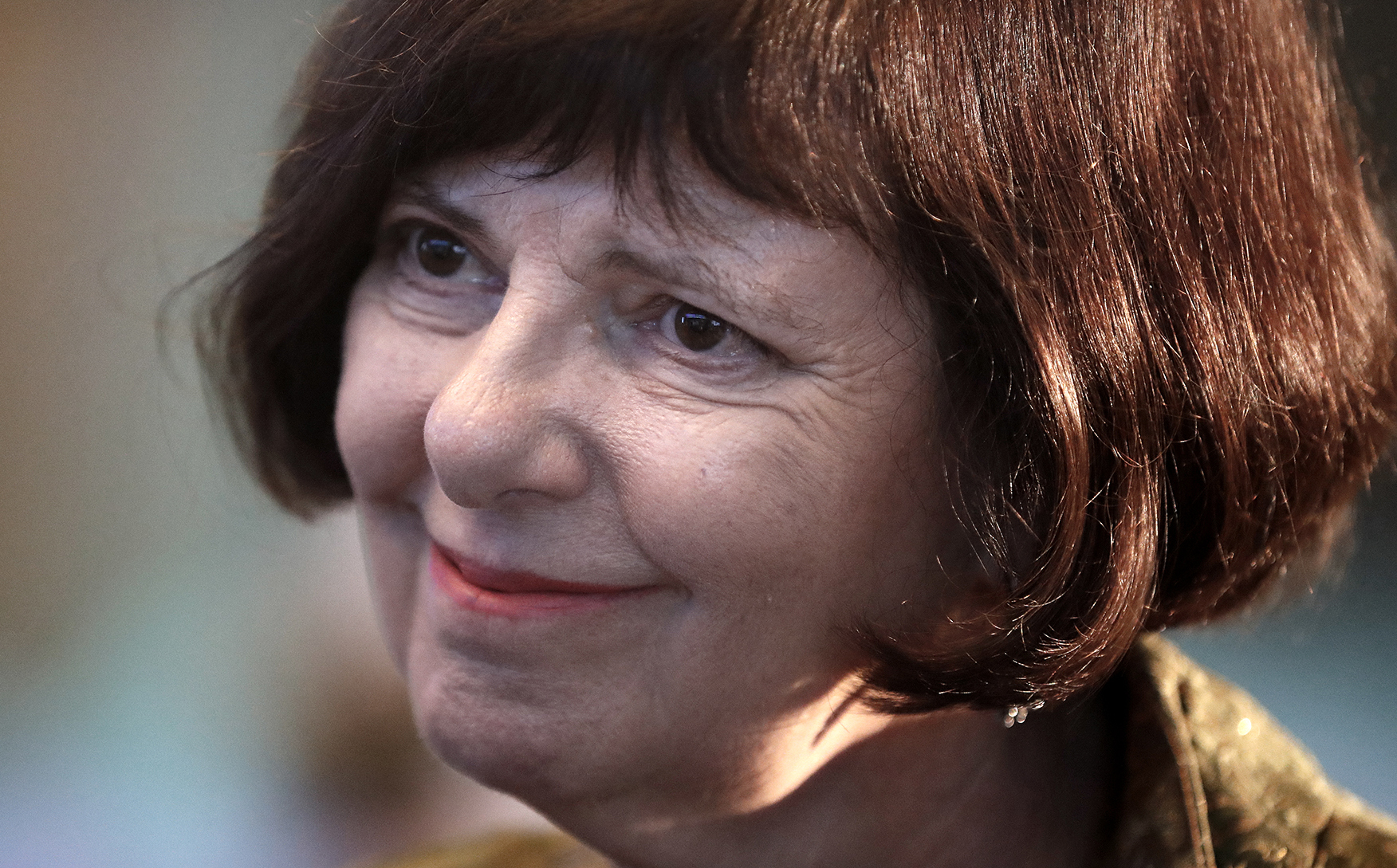 Environment Minister Barbara Creecy. (Photo: EPA-EFE / Nic Bothma)
Environment Minister Barbara Creecy. (Photo: EPA-EFE / Nic Bothma)
In just one example of the lack of transparency that has confounded trust issues, Sylon, the well-loved male of the Waterfall troop, was killed the day following a meeting of the CARBS (Councillor Appointed Reps Baboons South) in February 2020; not one word of the intention to kill Sylon was heard during the long meeting.
Knowing that “problem” baboons are all too frequently killed first and public concerns dealt with later, we were apprehensive when just days after the second public discussion on baboon management, instead of fresh thinking and moving towards the “new co-existence model” proposed by the City of Cape Town, the City and CapeNature instead issued a worrisome joint press statement.
Read more in Daily Maverick: “What GPS trackers revealed about Cape Town’s baboon troop movements”
On 15 June 2022, the City and CapeNature called for applications to relocate three male baboons who were noted for “raiding” behaviour and described as “assertive and brazen” (despite numerous requests for the authorities to moderate use of anthropomorphic and sensationalist language).
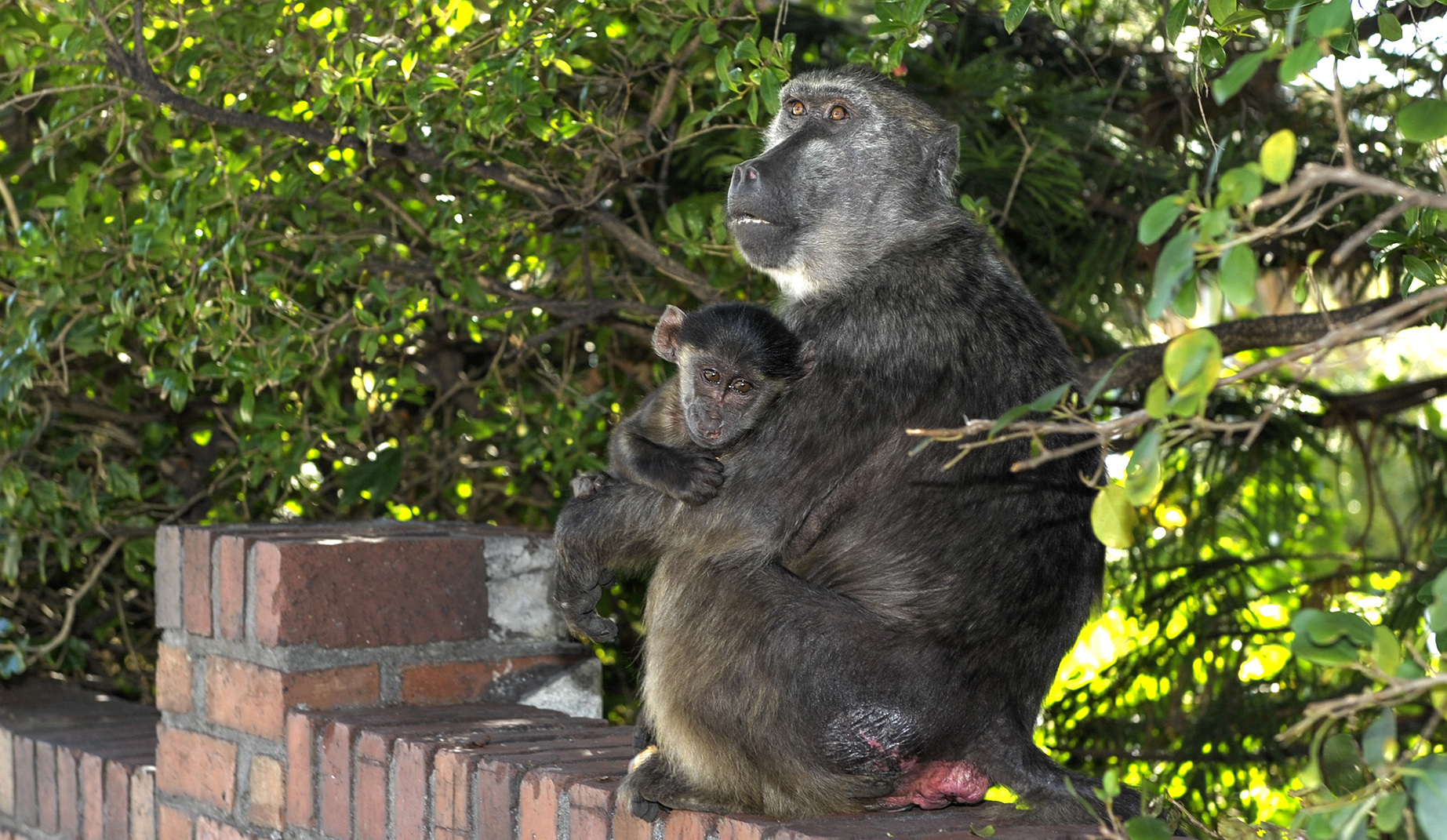 A mother and baby from the Waterfall baboon troop in Simon's Town. (Photo: Joyrene Kramer)
A mother and baby from the Waterfall baboon troop in Simon's Town. (Photo: Joyrene Kramer)
What the press release really means is that if an NGO or wildlife facility does not step forward and take these male baboons, together with all associated costs, the baboons will be killed in terms of the current protocols (BTTG3).
In addition to the three individual males (Gift of the Kommetjie troop, Van Damme of the Smitswinkel troop and Nomahlehle of the Waterfall troop) we have been informed that the authorities are considering “reducing the numbers” of baboons and that specifically the CT2 troop of Constantia may be one of the “compromise” decisions taken.
Killing is not the answer
After two decades of lethal management decisions, during which nearly 80 baboons have been killed in terms of the protocols, with no obvious improvement to management as a result of their deaths, we are adamant that killing baboons does not solve the issue of baboons coming into urban areas for easy food rewards, and in many cases the removal of dominant baboons (male and female) exacerbates problems by causing havoc with troop structures.
Read more in Daily Maverick: “It’s too late for the ‘can’t interfere with nature’ argument – suffering baboons need our help and compassion”
Given the fact that the partners (City of Cape Town, CapeNature, TMNP and SANParks) are reportedly resolving the long-outstanding issue of mandates and are supposedly working collaboratively, then a moratorium on killing baboons while they sort themselves out should not be considered an unreasonable request.
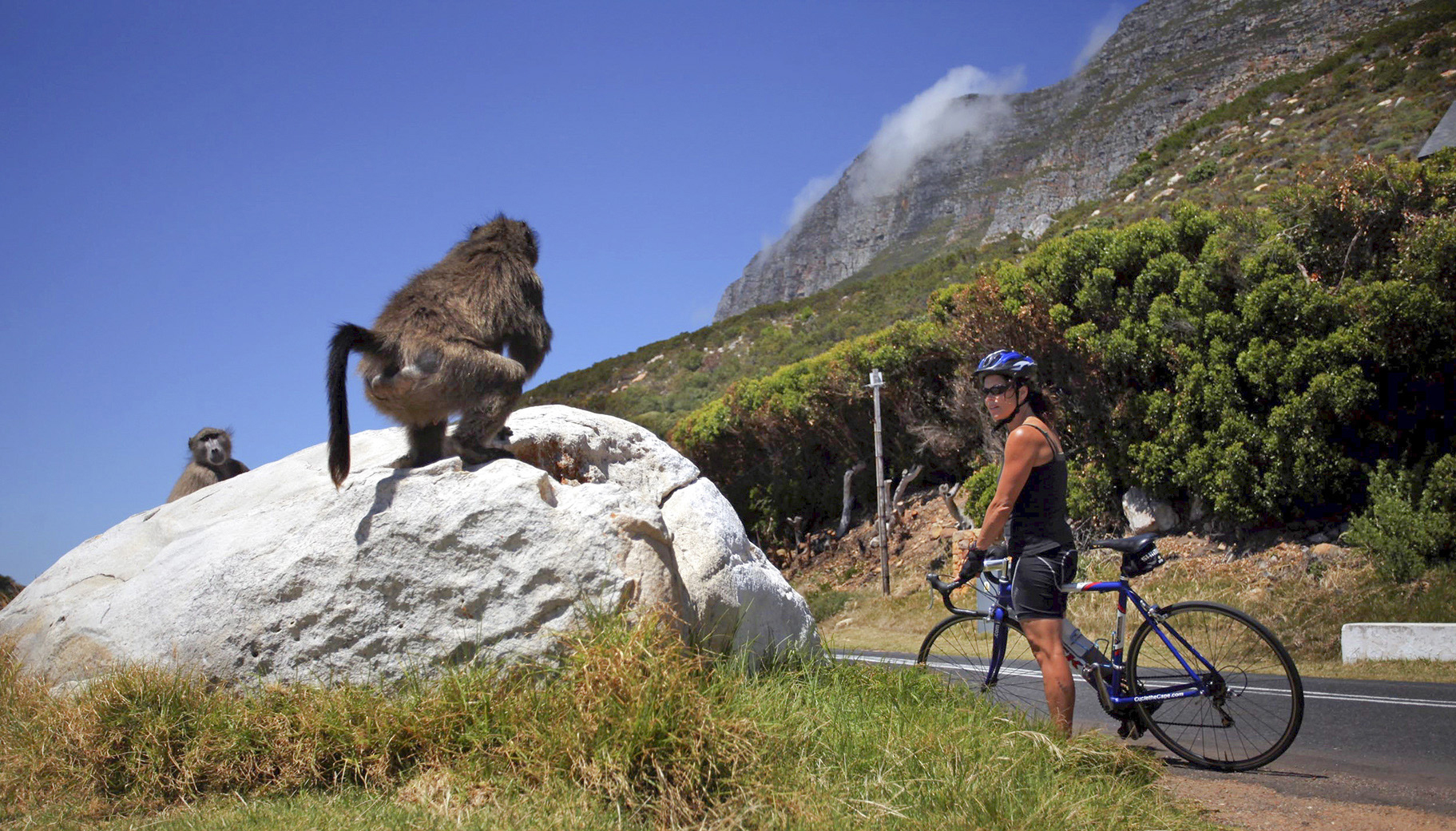 A cyclist watches baboons close to Cape Point. (Photo: Gallo Images /Sunday Times / Marianne Schwankhart)
A cyclist watches baboons close to Cape Point. (Photo: Gallo Images /Sunday Times / Marianne Schwankhart)
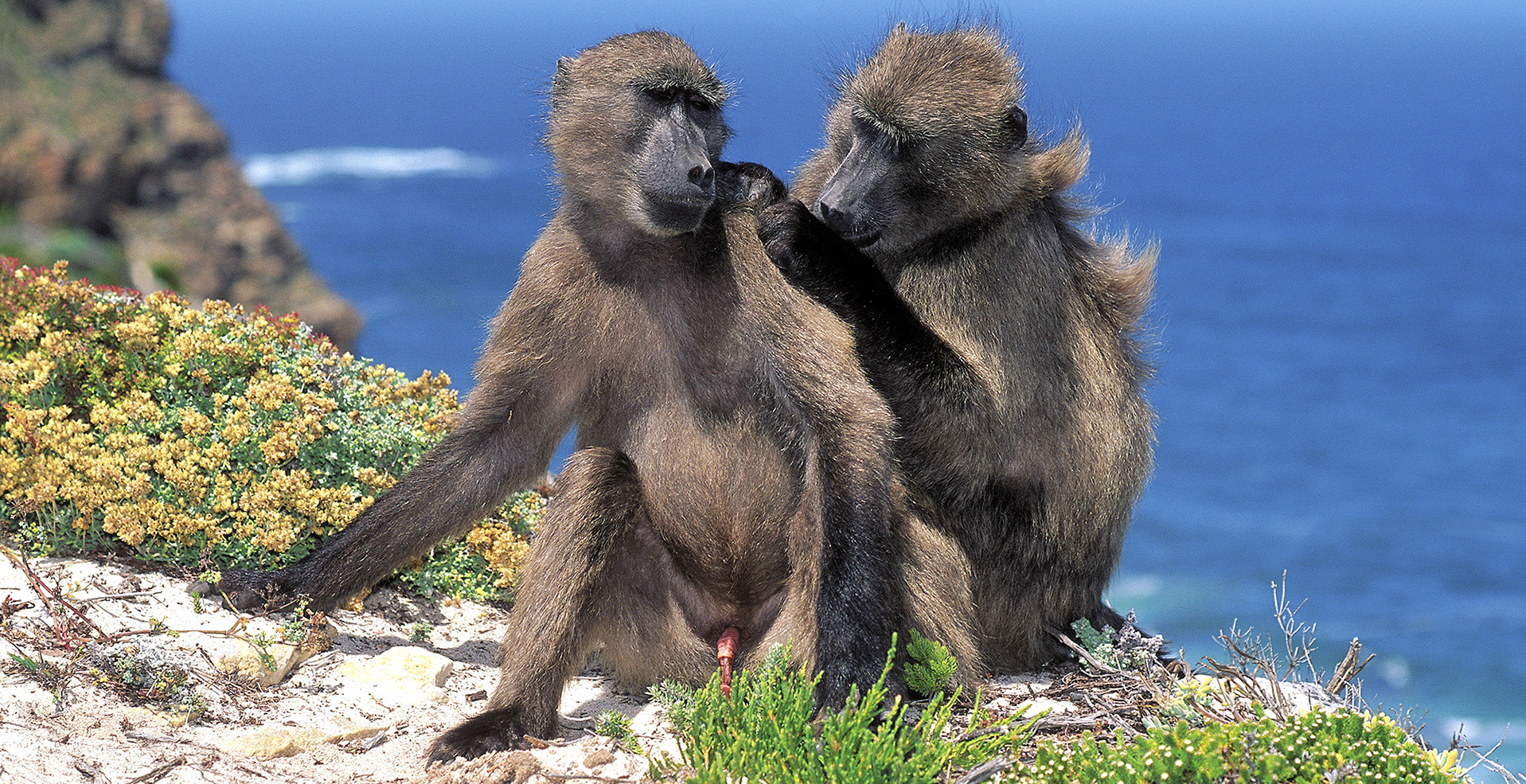 A baboon picks fleas off of his mate at the Cape Point Nature Reserve in Cape Town. (Photo: Gallo Images / Mark Skinner)
A baboon picks fleas off of his mate at the Cape Point Nature Reserve in Cape Town. (Photo: Gallo Images / Mark Skinner)
It seems that we are wrong again, although we have not received any official response to the request for a moratorium, but we could be forgiven for thinking that CapeNature had sent a very clear message when we received word that Julius of Plateau Road had been killed just days after our request for a moratorium.
The fact that CapeNature issued a hunting permit to kill a baboon at this tenuous time raises a number of important issues, not least of which is: how can the partners ever get to a point of working collaboratively when they act so independently of each other, and often with detrimental impacts? CapeNature did not have to liaise with the City when reaching the decision allowing Julius to be hunted, but their decision certainly has direct impact on the City who have been calling for positive inputs and solutions for baboon management and are now having to deal with very angry residents. Issuing a hunting permit meant that Julius was shot.
If the partners cannot even agree to a moratorium which would give residents, activists, advocacy groups and animal welfare organisations faith that baboons won’t be killed while they debate their long-term roles and responsibilities, how will they agree on long-term plans?
The City admitted at the public meeting on 7 June 2022 that they had not done as well as they could have when it comes to managing the baboon-human interface; a huge understatement when one considers there are no baboon-proof bins, no by-laws and few of the deliverables that were promised in the Urban Baboon Programme.
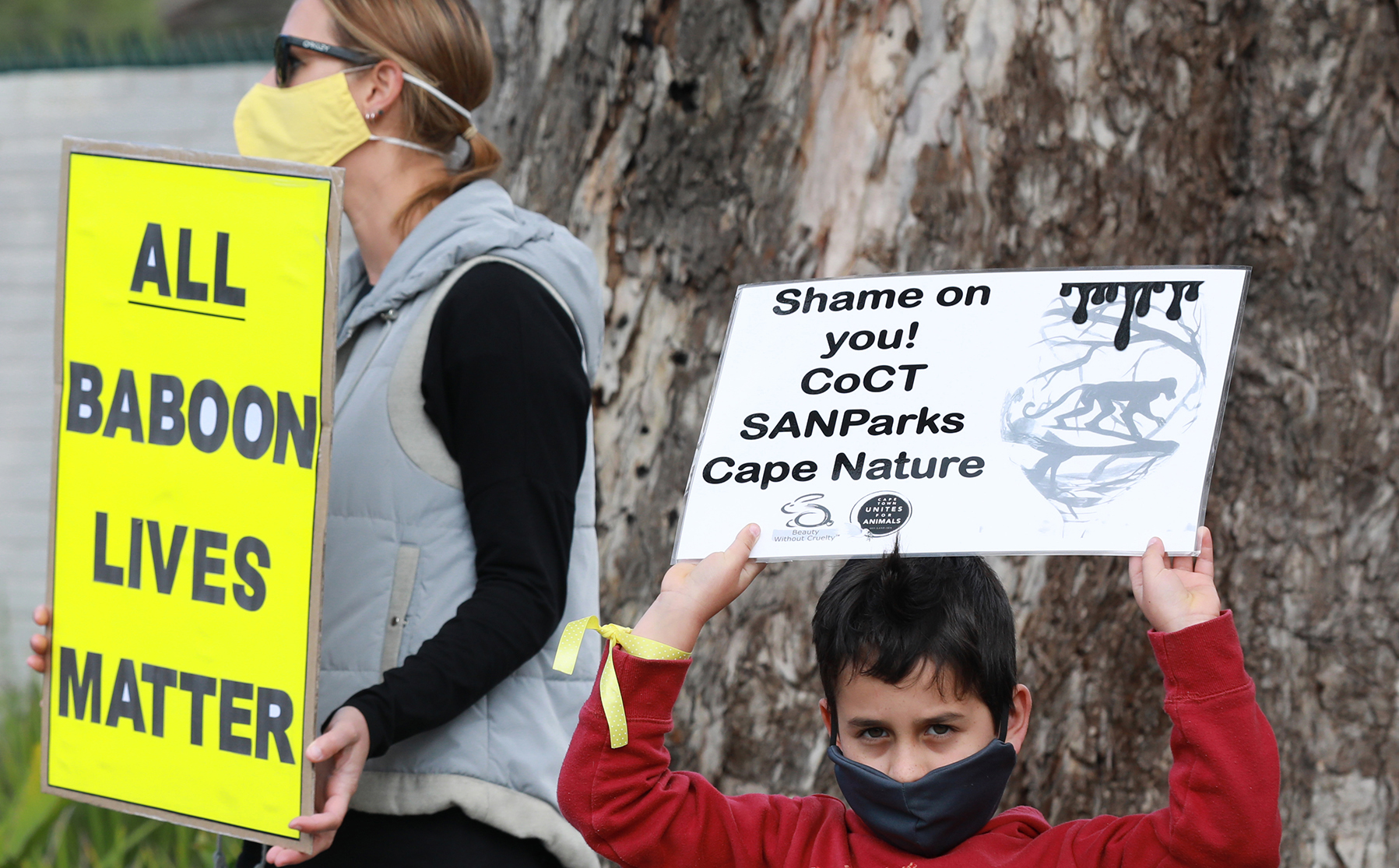 People take part in the #BringKatazaBack protest in Tokai, Cape Town on 27 September 2020. Kataza had been relocated from the Slangkop troop in Kommetjie to Tokai after City authorities claimed he was responsible for leading other baboons in his troop on raids in Kommetjie. (Photo: Gallo Images / Nardus Engelbrecht)
People take part in the #BringKatazaBack protest in Tokai, Cape Town on 27 September 2020. Kataza had been relocated from the Slangkop troop in Kommetjie to Tokai after City authorities claimed he was responsible for leading other baboons in his troop on raids in Kommetjie. (Photo: Gallo Images / Nardus Engelbrecht)
But it is not only the City who have failed baboons and management of the baboon-human interface; at the 7 June meeting it was openly admitted and discussed that the role-players had “walked away from the table”, leaving no one to deal with growing concerns.
It seems that only CapeNature have actively adhered to their role in management of baboons, doing so by continuously issuing permits for “problem baboons” to be killed. By opting for killing individual animals rather than holding the City, TMNP and the South African Navy accountable for mitigation and land management, all four parties are equally guilty of such dereliction of their duties that baboons have become habituated to food rewards found in human-occupied spaces – and humans occupy a great deal of space in the natural environment and in increasing urban sprawl.
Read more from Our Burning Planet:
Monkey business (Part One): There is an ongoing urban war on the Cape Peninsula – humans versus baboons
Monkey Business (Part Two): Who is responsible for the management of baboons on the Cape Peninsula?
Monkey Business (Part Three): Cape Peninsula’s dated baboon management plan is a failure, say critics
There is almost no place on the Cape Peninsula where you don’t find people, or garbage left by people, and baboons now know exactly where to find those easy pickings. But killing them won’t change anything… not unless we kill every last baboon and live a life without these fascinating, vexing primate neighbours.
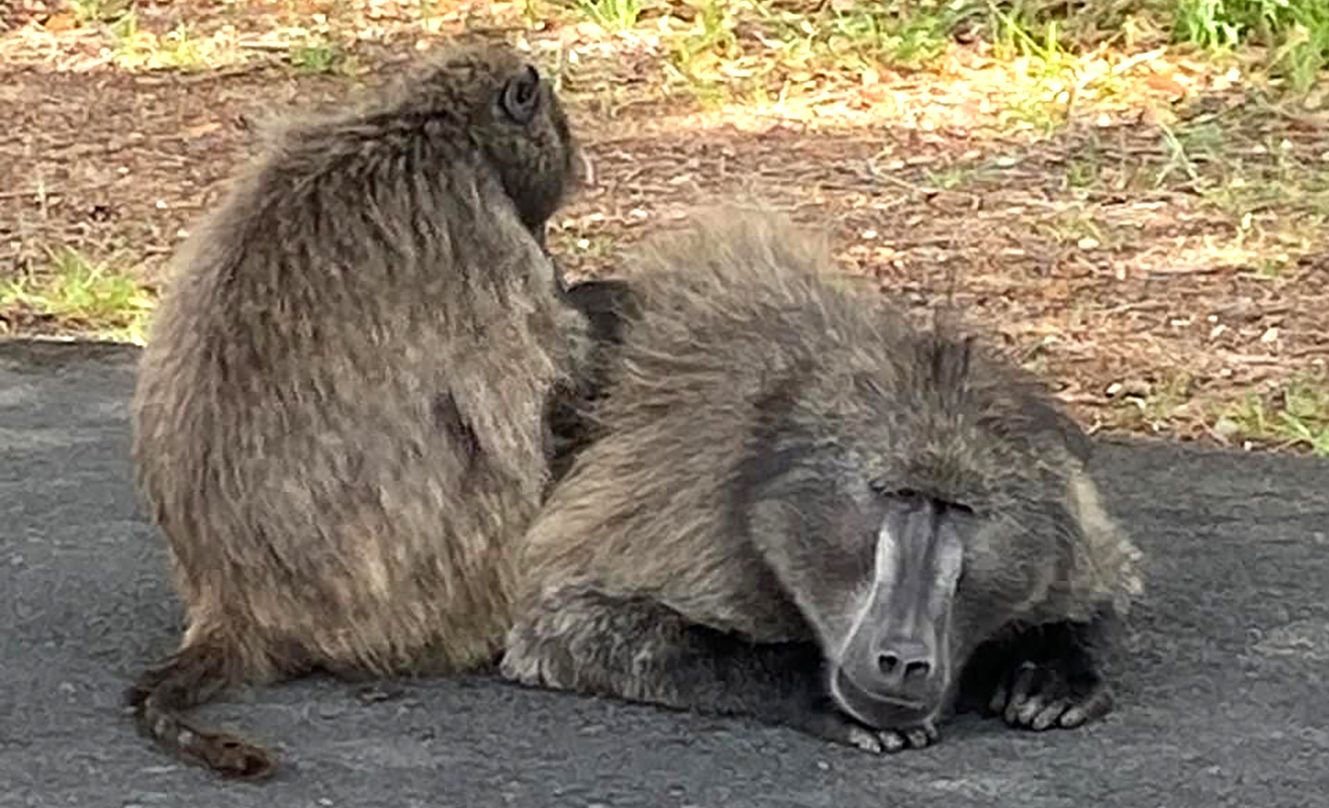 Julius of the Plateau Road troop. He was shot and killed after Cape Nature released a hunting permit. (Photo: Supplied)
Julius of the Plateau Road troop. He was shot and killed after Cape Nature released a hunting permit. (Photo: Supplied)
At a recent meeting, Baboon Matters was asked directly what our stance would be on culling the CT2 troop specifically. Our answer is clear: we do not support lethal management of baboons and the lives of baboons are not the compromise we are prepared to debate.
There is much to be done to resolve better management of the baboon-human interface and it starts with the role-players playing their roles with diligence, commitment and empathy. The apathy of the past has created this mess and only dedicated effort will resolve it. Baboon Matters and many thousands of citizens will fight for every baboon and to ensure acceptable management plans and methods. DM/MC
Jenni Trethowan has championed the rights of baboons in Cape Town for 25 years. In 1990, following the culling of a troop of baboons in Kommetjie, she, with Wally Petersen, formed the Kommetjie Environmental Awareness Group (KEAG) which successfully lobbied for the protected status of baboons on the Cape Peninsula. In 2001 she left KEAG to start Baboon Matters, focusing on creating awareness for the plight of baboons living on the urban edge. She has since featured in more than 40 documentaries, received numerous awards, published a book and been personally commended on her work by Dr Jane Goodall.




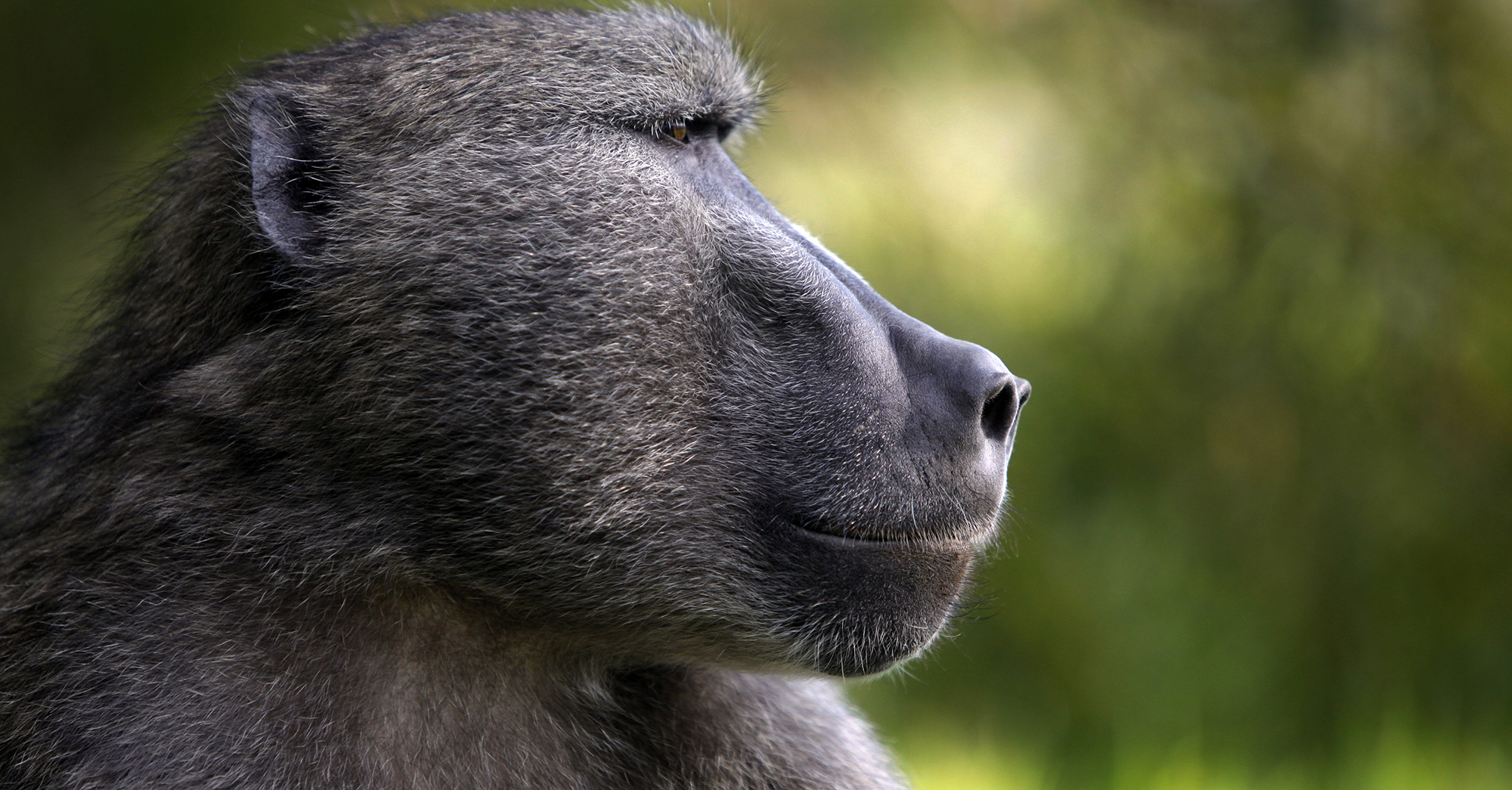 Julius of Plateau Road Troop.
(Photo: Supplied)
Julius of Plateau Road Troop.
(Photo: Supplied) 